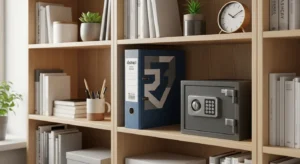
When to Consult a Professional
While small claims court is designed for self-representation, there are situations where going it alone might not be the best strategy. The goal of DIY law is to empower you, but true empowerment also means recognizing when you need help. Seeking professional advice doesn’t mean you’ve failed; it means you’re being strategic.
Consider consulting with an attorney if you encounter any of the following scenarios:
1. Your Case is More Complex Than It Seems
Some disputes appear simple on the surface but involve complicated legal issues. For example, a case involving a detailed real estate contract, a warranty with complex language, or a specific state or federal statute might have nuances that are difficult for a non-lawyer to navigate. If your claim requires interpreting laws or complex documents, a lawyer’s expertise can be invaluable.
2. The Amount of Money at Stake Exceeds the Small Claims Limit
If your damages are significantly higher than your state’s small claims court limit, you’ll have to decide whether to waive the excess amount or pursue the full amount in a higher court (often called civil or superior court). The procedures in higher courts are far more complex and formal, and representing yourself is extremely challenging. An attorney can help you assess the strength of your case and determine the best venue for filing.
3. The Defendant Has Hired a Lawyer
In states that permit lawyers in small claims court, finding out that the defendant has hired one can be intimidating. While a judge will still listen to your side, a lawyer knows the rules of evidence and procedure and may be able to present their client’s case more effectively or raise legal defenses you aren’t prepared to counter. A brief consultation with an attorney can help you prepare your strategy and anticipate the other side’s arguments.
4. You Need Help Collecting the Judgment
As we’ve discussed, winning your case is not the end of the road. If the defendant refuses to pay, you will have to begin a separate legal process to collect your judgment. The procedures for garnishing wages or levying bank accounts can be technical and confusing. Many attorneys offer services specifically for judgment collection, and their fee may be a percentage of the amount recovered.
5. You Are Uncomfortable or Anxious About Representing Yourself
Public speaking isn’t for everyone, and the courtroom environment can be stressful. If the idea of preparing your case, speaking to a judge, and questioning a defendant causes you significant anxiety, it’s perfectly okay to seek help. Peace of mind is valuable. Sometimes, just paying for an hour or two of an attorney’s time to review your case and coach you on your presentation can make all the difference in your confidence and preparedness.
Many local bar associations offer lawyer referral services, and some have low-cost or free legal aid clinics for seniors or low-income individuals. A consultation doesn’t always have to lead to full representation; it can be a way to get answers to specific questions and gain the confidence you need to move forward. For official information and to find local resources, you can consult government websites like USA.gov.




